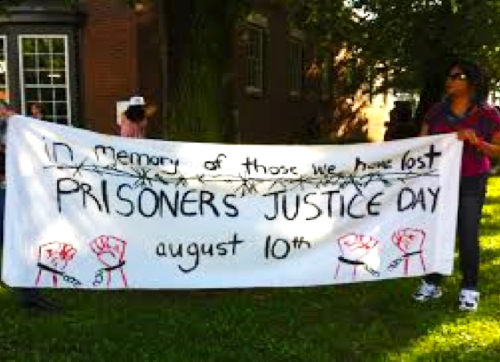August 10th was Prisoners’ Justice Day, a day to mourn and remember those we lost to an apathetic correctional system. It is a day to highlight the inhumane conditions faced by those behind bars. It is day to advocate for change, to advocate for a society capable of recognizing human dignity, of showing compassion, and of eliminating injustices to whomever and wherever these injustices occur.
On August 10th, we remember those that have died, either through suicide or lack of adequate health care. We remember “Ashley Smith” whose pleas for help were ignored.
On this day, we draw attention to the experience of women in the penal system. We see society’s response to those with mental health issues, and draw attention to the correctional system’s increased use of segregation for those with mental disabilities and the use of a risk classification system that equates mental health needs with risk.
On this day, we draw attention to the increased number of incarcerated women at a time when the number of crime and the severity of crime are decreasing, when most women are incarcerated for non-violent crimes.
We see a correctional system that ignores the context of many incarcerated women, the structural inequities that exist outside of prison that marginalize women and that may relate to behaviours leading to imprisonment. It is a system that continues to marginalize women – shackled to a male-centric approach to programming, the system offers little in terms of access to meaningful work skills or training programs. It is, in effect, an environment that does little to facilitate life outside bars.
So on August 10th, we stand together and advocate for change. We advocate for a correctional system that does better, that eliminates the use of segregation and a risk classification system that equates mental health needs with risk. We advocate for a society that treats those with mental health issues more proportionately, more humanely. We advocate for a society, one that does not see prison as an appropriate response to an erosion of education, social and health services.




